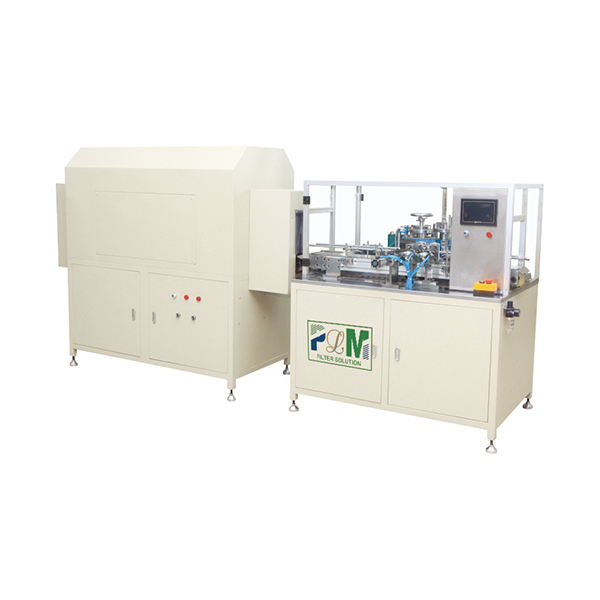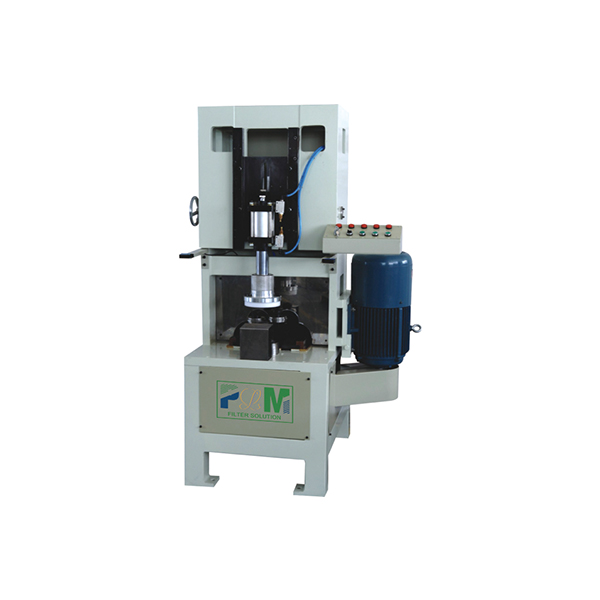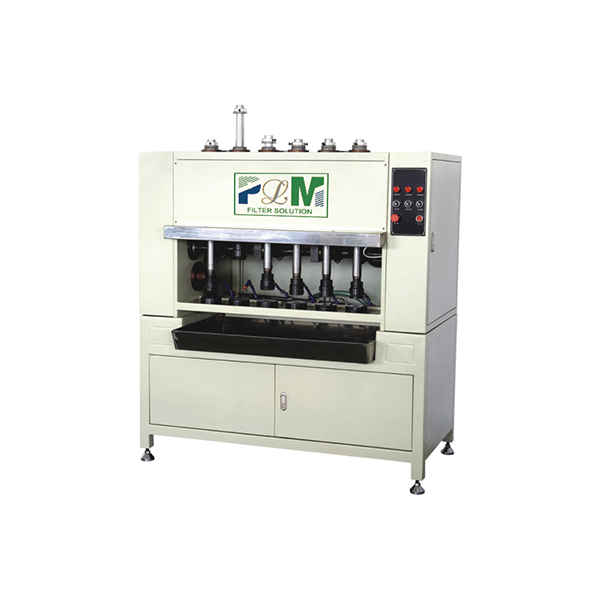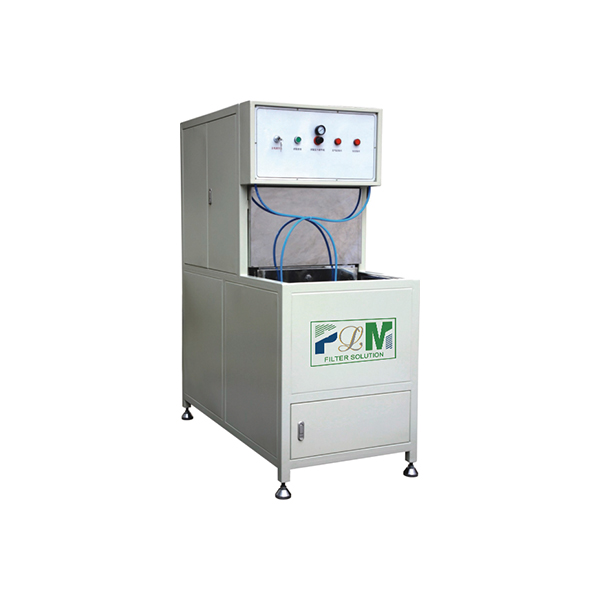Aug . 30, 2025 01:40 Back to list
PP Spun Filter Cartridge Making Machine - High Quality & Efficient
Industry Trends in Filtration Technology
The global demand for high-performance filtration solutions is experiencing robust growth, driven by stringent environmental regulations, increasing industrialization, and a rising awareness of water and air quality. Industries such as petrochemicals, pharmaceuticals, food and beverage, and water treatment are continually seeking more efficient, reliable, and cost-effective filtration methods. This landscape fuels innovation in manufacturing equipment, particularly for products like PP spun filter cartridges, which are vital components across numerous applications. Key trends include the push for automation, energy efficiency, and the development of machines capable of producing filters with enhanced structural integrity and precise micron ratings. The market for professional air filter making machines is expanding, reflecting a broader commitment to industrial air purification and health standards.
Technological advancements are focused on improving melt-blown extrusion processes, optimizing fiber distribution, and ensuring consistent product quality. The integration of IoT and AI for predictive maintenance and operational optimization is also gaining traction, leading to more sophisticated manufacturing lines that can adapt to varying production demands. This evolution underscores the critical role of advanced machinery in meeting the complex filtration challenges of the 21st century.
Detailed Process Flow: Manufacturing PP Spun Filter Cartridges
The production of high-quality PP spun filter cartridges is a multi-stage process, demanding precision and control at every step. A specialized pp spun filter cartridge making machine is central to this intricate process, transforming raw polypropylene granules into highly effective filtration media. The core material, virgin polypropylene, is selected for its chemical inertness, broad chemical compatibility, and thermal stability, making it suitable for diverse industrial environments. The manufacturing process typically involves melt-blown technology, ensuring a gradient pore structure for superior depth filtration.
Schematic Steps of PP Spun Filter Cartridge Production:
1. Raw Material Feeding
Polypropylene (PP) granules fed into extruder hopper.
2. Melting & Extrusion
PP melted, extruded through fine nozzles (spinnerets).
3. Fiber Formation & Laying
High-velocity air draws fibers, depositing them onto a rotating mandrel.
← 6. Quality Control
Micron rating, length, diameter, and integrity checks.
5. Cooling & Cutting
Formed cartridge cooled, cut to precise lengths.
4. Gradient Density Formation
Fibers accumulate, forming a progressively denser structure from outer to inner.
Key manufacturing processes involved in the machinery itself include high-precision CNC machining for critical components, ensuring tight tolerances for spinnerets and mandrels. Robust casting and forging techniques are employed for structural elements to guarantee durability and stability during continuous operation. All components adhere to strict testing standards such as ISO 9001 for quality management and relevant ANSI standards for mechanical parts.
The resulting cartridges boast an extended service life due to their robust construction and graded pore structure, which maximizes dirt-holding capacity. These filters are extensively used in target industries such as petrochemical (for process water filtration, solvent purification), metallurgy (cooling water, wastewater treatment), and water supply & drainage (pre-filtration for reverse osmosis water filter machines and pure water treatment filter machines). In typical application scenarios, these filters offer significant advantages like energy saving by reducing pump load due to lower initial pressure drops and superior corrosion resistance, ensuring long-term performance even with aggressive fluids.
Technical Specifications & Parameters
Understanding the technical specifications of a pp spun filter cartridge making machine is crucial for evaluating its suitability for specific production needs. These parameters dictate machine performance, production capacity, and the quality of the final filter product.
Typical PP Spun Filter Cartridge Machine Specifications
| Parameter | Specification Range | Unit |
|---|---|---|
| Production Capacity | 300-1500 | Pcs/Hour |
| Filter Length Range | 10 - 50 | Inches |
| Filter Outer Diameter | 50 - 120 | mm |
| Filter Inner Diameter | 20 - 40 | mm |
| Micron Rating Range | 1 - 100 | Microns |
| Heater Power | 30 - 60 | KW |
| Total Installed Power | 50 - 100 | KW |
| Air Compressor Pressure | 0.5 - 0.8 | MPa |
| Dimensions (L x W x H) | 8.5 x 3.5 x 2.8 (typical) | Meters |
These parameters are critical for engineers and procurement managers. For instance, the micron rating directly impacts filtration efficiency, with lower ratings indicating finer filtration suitable for sensitive applications like those handled by a pure water treatment filter machine. The production capacity, measured in pieces per hour, determines the throughput and scalability of manufacturing operations. Energy consumption, represented by heater and total installed power, directly influences operational costs. Consideration of a professional air filter making machine will often involve similar parameters focused on air permeability and dust holding capacity.
Application Scenarios
The versatility of PP spun filter cartridges, produced by advanced machinery, allows for their deployment across a myriad of demanding industrial and commercial applications. Their graded density structure ensures high dirt-holding capacity and effective removal of particulate matter from various fluid streams.
- Water Treatment: As pre-filters in reverse osmosis (RO) systems, UF/NF systems, and general industrial/municipal water treatment plants. They effectively remove suspended solids, sediment, rust, and other particulates, protecting downstream components like membranes in a reverse osmosis water filter machine.
- Chemical & Petrochemical Industries: Filtration of acids, bases, solvents, oils, and other aggressive chemicals. The chemical inertness of PP ensures compatibility and prevents leaching, crucial for processes involving pure water treatment filter machine or specialized chemical filtration.
- Food & Beverage: Clarification of potable water, beverages, edible oils, and process water. Essential for maintaining product purity and quality, such as in sunflower seeds oil filter machine applications, where particulate removal is paramount.
- Pharmaceuticals & Biotechnology: Pre-filtration for critical processes, removal of particles from culture media, and general water purification, where high purity standards are non-negotiable.
- Electronics Industry: Purification of ultra-pure water and process chemicals used in semiconductor manufacturing and printed circuit board (PCB) production.
- Air Filtration: While primarily liquid filters, the spunbond process principles apply to components within sophisticated air filter making machines, contributing to the development of media with specific structural characteristics for air purification.
These diverse applications underscore the critical role of the pp spun filter cartridge making machine in supporting fundamental industrial and environmental processes worldwide.
Technical Advantages and Innovations
Modern pp spun filter cartridge making machine equipment incorporates several technical advantages that set them apart in efficiency, reliability, and product quality:
- Advanced Extrusion Technology: Utilizing precision melt-blown extrusion heads ensures uniform fiber diameter and distribution, critical for consistent micron ratings and optimal filtration performance.
- Programmable Logic Controller (PLC) Systems: Integrated PLC controls offer automated operation, precise temperature management for PP melting, and speed control for mandrels and air blowers. This minimizes human error, ensures batch-to-batch consistency, and allows for real-time adjustments.
- Gradient Density Manufacturing: The ability to produce cartridges with varying pore sizes across the filter depth. This 'depth filtration' design captures larger particles on the surface and finer particles deeper within the filter, significantly increasing dirt-holding capacity and extending service life compared to surface filters.
- Energy Efficiency: Modern machines incorporate energy-saving heating elements, optimized insulation, and variable frequency drives (VFDs) for motors, reducing operational electricity consumption. This contributes to lower operational costs and a smaller carbon footprint.
- Robust Construction: Built with high-grade stainless steel (e.g., SUS304 or SUS316 for contact parts) and precision-engineered components, ensuring durability, corrosion resistance, and stable operation in harsh industrial environments.
- High Customization Capability: The flexibility to adjust parameters such as length, diameter, micron rating, and even patterns allows manufacturers to cater to specific client requirements, from standard sizes to specialized filters for unique applications like those requiring a 2014 car air filter making machine or a compress air filter making machine.
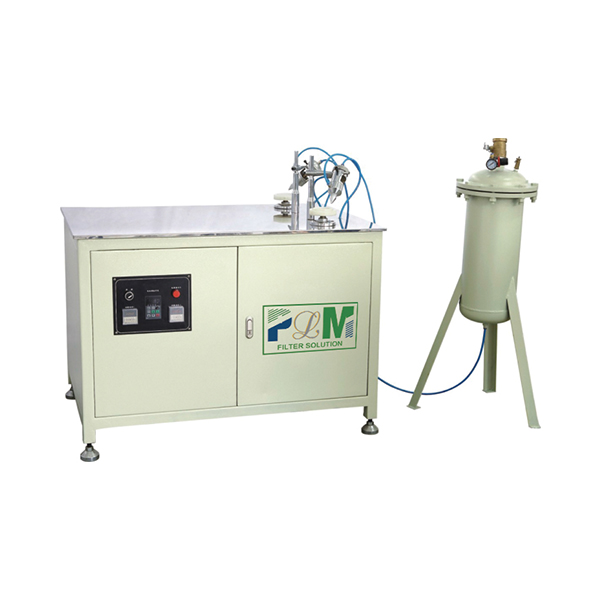
These technical advantages translate directly into tangible benefits for manufacturers: higher output quality, reduced waste, lower operating costs, and greater market responsiveness. The continuous improvement in these machines reflects a commitment to delivering superior filtration media for an ever-demanding market.
Vendor Comparison and Selection Criteria
When investing in a pp spun filter cartridge making machine, selecting the right vendor is paramount. Prospective buyers must evaluate several factors beyond the initial purchase price to ensure long-term value and operational success. This includes assessing the vendor's reputation, technological capabilities, after-sales support, and commitment to quality.
Key Vendor Comparison Factors
| Factor | High-Tier Vendor Attributes | Lower-Tier Vendor Risks |
|---|---|---|
| Technology & Innovation | Patented designs, advanced PLC/HMI, energy-efficient components, continuous R&D. | Outdated technology, manual controls, high energy consumption, limited customization. |
| Quality & Certifications | ISO 9001 certified, CE marking, robust material selection (e.g., SUS304 for mandrels), rigorous QC protocols. | Lack of certifications, inferior materials, inconsistent product quality, premature wear. |
| After-Sales Support | Global service network, readily available spare parts, remote diagnostics, comprehensive training, quick response times. | Limited or no technical support, difficult to obtain spare parts, long downtimes. |
| Customization & Flexibility | Ability to tailor machine for specific filter lengths, diameters, micron ratings, and unique production requirements. | Standardized models only, no adaptation for specialized products or production volumes. |
| Market Reputation & Experience | Years in operation, positive customer testimonials, strong industry partnerships, established track record. | New entrant with unproven technology, negative feedback, limited client base. |
A thorough due diligence process, including factory visits, reference checks, and detailed technical discussions, is essential to mitigate risks and ensure a successful investment. This diligent approach is equally important whether you are sourcing a 2014 car air filter making machine or a state-of-the-art melt-blown line.
Customized Solutions and Client Testimonials
Recognizing that no two manufacturing operations are identical, leading providers of pp spun filter cartridge making machine offer extensive customization options. This flexibility ensures that the equipment perfectly aligns with a client's specific production goals, available footprint, and future expansion plans.
Customization Capabilities:
- Output Configuration: Tailoring production lines for specific filter lengths (e.g., 10", 20", 30", 40") and diameters (e.g., standard 63mm, jumbo 115mm).
- Micron Rating Versatility: Adjustments to enable production of various micron ratings (1, 5, 10, 25, 50, 100 microns) on the same machine through parameter changes.
- Automation Levels: From semi-automatic setups to fully automated lines with integrated cutting, weighing, and packaging solutions.
- Material Handling: Customized feeding systems for different PP granule types or additives, and integration with upstream/downstream processes, such as a paper folding machine for air filter media.
- Geographic & Regulatory Adaptations: Electrical specifications, safety features, and documentation compliant with local standards (e.g., UL, CSA, ATEX).
Client Testimonials & Experience:
"Our investment in a custom-configured PP spun line dramatically improved our production efficiency. The machine's flexibility allowed us to quickly pivot to different filter sizes, meeting fluctuating market demands without significant downtime. The ease of operation and consistent product quality have been exceptional. We've seen a 30% increase in output with the same footprint." - Production Manager, Leading Water Solutions Provider.
"We needed a robust solution for high-volume filter production for our industrial clients. The customized machine delivered by our vendor exceeded expectations in terms of reliability and energy efficiency. Their technical team provided excellent support during installation and commissioning, ensuring a smooth ramp-up. It's a key asset in our manufacturing facility, supporting our diverse product range from industrial water filters to specialized air filter applications." - Operations Director, Industrial Filtration Manufacturer.
These testimonials highlight the tangible benefits of choosing a vendor capable of delivering tailored, high-performance solutions, demonstrating strong experience and trustworthiness.
Application Case Studies: Real-World Impact
The deployment of advanced pp spun filter cartridge making machine solutions has delivered significant operational and financial benefits across various industries. Here are illustrative case studies:
Case Study 1: Municipal Water Treatment Plant Upgrade
Challenge: A large municipal water treatment plant struggled with inconsistent pre-filtration for its RO units, leading to frequent membrane fouling and high maintenance costs. Their existing filters, produced by an older generation of air filter air filter making machine technology, offered limited dirt-holding capacity.
Solution: The plant invested in a new, high-capacity pp spun filter cartridge making machine, enabling them to produce custom-designed 20-micron pre-filters with gradient density. The machine featured enhanced melt-blown technology and precise process controls.
Results: After implementing the new filters, the plant reported a 45% reduction in membrane cleaning frequency and a 20% decrease in overall operational expenditure related to filtration. The filters demonstrated superior particle retention, extended service life, and consistent flow rates, significantly improving the reliability of their pure water treatment filter machine system.
Case Study 2: Edible Oil Clarification Facility
Challenge: An edible oil processing facility needed to improve the clarity and shelf-life of its sunflower oil products. Existing filtration methods were slow, labor-intensive, and sometimes left fine particulates, affecting product aesthetics and marketability. They considered options from a sunflower seeds oil filter machine to a more general screw press sludge dewatering machine for process efficiency.
Solution: The facility acquired a specialized pp spun filter cartridge making machine capable of producing 5-micron filters with a specific oleophilic surface treatment. This customization enhanced the filters' ability to capture fine suspended solids and some colloidal impurities unique to oil processing.
Results: The new filtration setup led to a 60% improvement in clarity and extended the product's shelf-life by two months. The automated production of filters significantly reduced labor costs and increased throughput, allowing the facility to process more oil efficiently and meet stringent food safety standards.
Trustworthiness & Support: FAQ, Lead Time, Warranty
Frequently Asked Questions (FAQ)
- Q: What is the typical lifespan of a PP spun filter cartridge making machine?
A: With proper maintenance, a high-quality machine can operate reliably for 10-15 years or more. Key components like extruders and heaters may require periodic replacement, but the main frame and control systems are built for longevity. - Q: Can the machine produce filters of different lengths and diameters?
A: Yes, most modern machines are designed for flexibility. With quick adjustments and changing of mandrels, they can produce cartridges from 10 to 50 inches in length and various outer diameters, catering to diverse market demands. - Q: What kind of raw material is required?
A: Virgin polypropylene (PP) granules are the primary raw material. The quality of the PP significantly impacts the final filter performance and machine operation. - Q: Is training provided for operation and maintenance?
A: Reputable vendors typically provide comprehensive on-site training for operators and maintenance staff during installation and commissioning, ensuring clients can maximize their investment.
Lead Time & Fulfillment
Standard pp spun filter cartridge making machine models usually have a lead time of 45-75 business days from order confirmation to shipment, depending on manufacturing schedules and component availability. Custom-engineered solutions may require longer lead times, typically 90-120 business days, to accommodate specific design and fabrication requirements. We ensure transparent communication throughout the entire fulfillment process, providing regular updates on production milestones.
Warranty Commitments
All our industrial filter making machines, including the PP spun lines, come with a standard 12-month warranty from the date of installation or 18 months from shipment, whichever comes first. This warranty covers manufacturing defects and component failures under normal operating conditions. Extended warranty options and comprehensive service contracts are also available to provide clients with enhanced peace of mind and operational security.
Customer Support & After-Sales Service
Our commitment to client success extends far beyond the sale. We offer a multi-tiered customer support system, including:
- 24/7 Technical Hotline: For immediate assistance with operational queries or troubleshooting.
- Remote Diagnostics: Utilizing secure network connections to diagnose and resolve control system issues efficiently.
- On-Site Support: A team of experienced engineers available for scheduled maintenance, complex repairs, and performance optimization.
- Spare Parts Availability: A comprehensive inventory of genuine spare parts ensures minimal downtime, with expedited shipping options.
- Regular Maintenance Programs: Tailored service agreements designed to maximize equipment longevity and efficiency.
This robust support structure is designed to ensure continuous, optimal performance of your investment.
Conclusion
The demand for high-quality filtration media continues to grow across industries, making the investment in a state-of-the-art pp spun filter cartridge making machine a strategic imperative for manufacturers. These advanced machines, characterized by their precision engineering, automation capabilities, and flexibility in customization, are pivotal in producing the reliable and efficient filter cartridges essential for water purification, chemical processing, and various other critical applications. By adhering to stringent manufacturing standards and offering comprehensive after-sales support, leading vendors empower their clients to achieve superior product quality, enhanced operational efficiency, and a competitive edge in the global filtration market. The continuous evolution of this technology ensures that businesses can meet the increasing demands for purity, safety, and environmental responsibility, solidifying their role as indispensable components of industrial infrastructure.
References
- European Meltblown Nonwovens Industry Report, EDANA, 2022.
- ISO 9001:2015 Quality Management Systems – Requirements, International Organization for Standardization.
- Advances in Polymer-Based Filters for Water Purification, Journal of Applied Polymer Science, 2021.
- Market Analysis: Global Industrial Filter Cartridge Market, Grand View Research, 2023.
- Principles of Filtration: A Technical Guide to Depth Filtration, Filtration & Separation Journal.
active carbon air filter for air purifier – Odor/VOC Control
NewsNov.17,2025Replacement Dyson Carbon HEPA Air Filter – High Efficiency
NewsNov.17,2025Active Carbon Air Filter for Air Purifier | High Adsorption
NewsNov.17,2025Active Carbon Air Filter for Air Purifier | Odor & VOC Control
NewsNov.17,2025Active Carbon Air Filter for Air Purifier | Odor & VOC
NewsNov.17,2025Sintered Porous Metal Filter Tube Cup | 5 Micron, SS316L
NewsNov.11,2025

